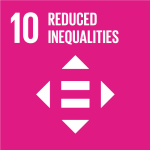 Reduce inequalities in drinking water services: A Strategic Paper for UNICEF to Leave No-one Behind
Reduce inequalities in drinking water services: A Strategic Paper for UNICEF to Leave No-one Behind
Development of a strategic paper for UNICEF WASH to better mainstream equity with respect to drinking water service in its advocacy, planning, programming, monitoring and reporting.
Country:
Switzerland & five case study countries
Project Period:
2018-2019
Services Provided:
Knowledge Sharing, Networking, Training & Capacity Building
- Project Management, Consultancy
Name of Staff involved and functions performed:
Project Manager: Kerstin Danert, Layout/Design: Martin Läng
Name of Client(s)
UNICEF
Description of the Project:
There are considerable inequalities in access to drinking water services around the globe. National surveys and studies provide an indication of stark differences between geographic regions and countries, between urban and rural populations, for different levels of wealth as well as other factors.
The UNICEF Water, Sanitation and Hygiene (WASH) strategy states that unless poor and vulnerable groups are specifically prioritized in programmes and policies, disparities will continue to widen. This echoes UNICEF’s re-focus on equity across the organisation as a whole, as launched in 2010, which drew attention to the persistence of deprivations for the most disadvantaged children. UNICEF’s equity re-focus reflects a growing unease about the contribution of widening inequality to political polarisation and the erosion of social cohesion in many advanced and emerging economies.
The strategic paper will provide guidance and recommendations for UNICEF country offices so that they can do their best to ensue equitable access to drinking water supplies, particularly given the constrains of limited resources, challenging political and institutional contexts and demands to demonstrate value for money.
The project comprises an initial desk review, followed by five country case studies and the development of the strategic paper or guidance note.



